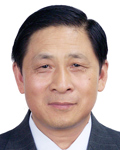|
 |
|
PRE-SUMMIT EXCHANGES: U.S. President Barack Obama talks with visiting Chinese Foreign Minister Yang Jiechi at the White House on January 4, two weeks before a planned summit with his Chinese counterpart Hu Jintao (ZHANG JUN) |

Since the start of 2011, there have been frequent exchanges between China and the United States. Chinese Foreign Minister Yang Jiechi received a warm welcome from U.S. President Barack Obama when he arrived in Washington, D.C. to pave the way for Chinese President Hu Jintao's coming state visit. Soon after, U.S. Defense Secretary Robert Gates kicked off a visit to China and hold talks with President Hu, marking the restoration of suspended military ties between the two sides.
Sino-U.S. relationship is one of the most important bilateral relationships in the world and will inevitably influence the future development of the world. Hence, the deterioration of the relationship in 2010 worried the international community. With the good start in 2011, though, the global society can enjoy a sigh of relief.
Complex relations
President Hu's state visit will be a significant diplomatic step and should create a solid platform for future development. It comes nearly four decades after the two countries opened the door to diplomatic relations with U.S. President Richard Nixon's visit to China in 1972.
How to define the Sino-U.S. relationship has remained a question concerning the future stability and healthy development of the relationship since the Cold War ended in the early 1990s. And the urgency of finding an answer to the question increased since Obama came into power in 2009.
To the United States, China was a strategic partner during the Bill Clinton era and a strategic competitor during the George W. Bush era. Currently, China is neither an enemy nor a friend to the Obama administration. Essentially, the U.S. Government identifies China as a country "at a crossroads" and one in which it refuses to place a great deal of trust. Washington's China policy has been quite uncertain and frequently adjusted due to the changing influences of different interest groups within the United States.
The two sides must clarify this relationship before endeavoring to develop "positive, comprehensive and cooperative" Sino-U.S.
ties. Their ability, or inability, to reach an agreement on this question during President Hu's visit will greatly influence the future of the bilateral relationship. The main focus will be how to increase strategic mutual trust. Given the good signs early this year, there is reason to believe the summit between Hu and Obama will be a milestone in the history of the bilateral relationship.
The two presidents will likely focus on the renminbi exchange rate, trade imbalances, U.S. restrictions of hi-tech exports to China, human rights, religious freedom and China's full market economy status, as well as cultural and educational exchanges. They will also discuss international affairs that concern both, such as the nuclear issues in Iran and North Korea. Both China and the United States are committed to maintaining peace and stability in Northeast Asia and realizing the denuclearization of the Korean Peninsula. On global issues like energy security, climate change, counterterrorism and the development of alternative energy, the two sides also have more points of agreement than differences.
Hot issues
Recently, the United States dispatched three aircraft carriers to East Asia. This shows that hard-liners still insist on showing off America's superior military power. In the meantime, there are also practical politicians in the United States who consider cooperative partnerships the key to the world's peaceful development.
| 